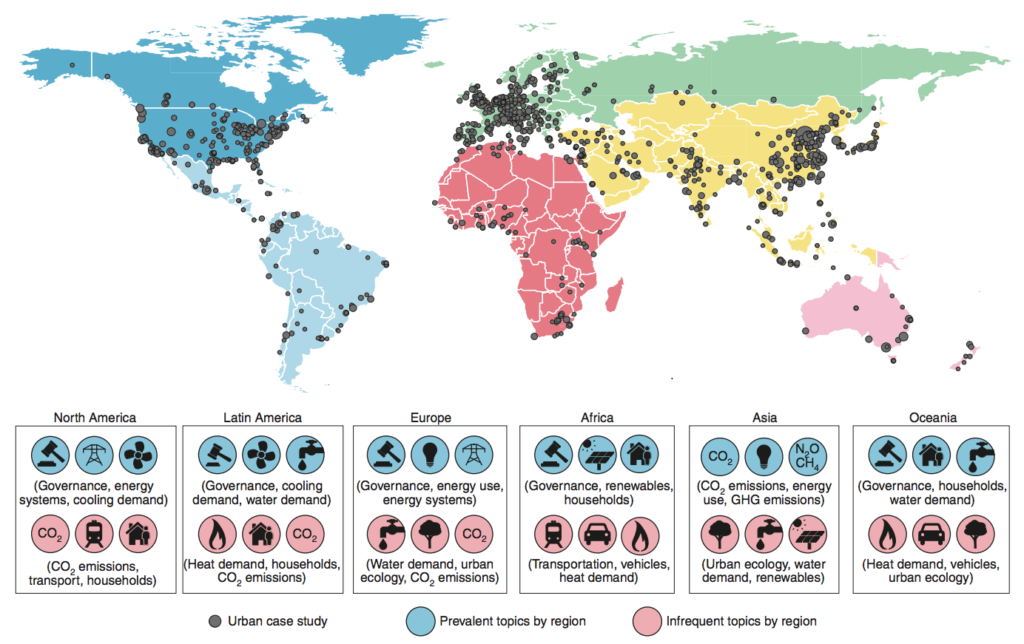Cities are major actors trying to address climate change, yet we rarely find lessons that could be replicated from one city to another. Now the new paper in Nature Climate Change suggests it’s time to rethink how we approach climate change research in cities globally.
A study by the Mercator Research Insitute argues that researchers need to have more time for doing what really matters rather than spending thousands of hours on piecing together bits of useful information from across thousands of studies, whose number grows exponentially every year. With this in mind, the authors developed a machine learning algorithm that could track relevant studies, analyse abstracts, sort papers and provide insights on the actual global map of research on climate change in cities.
According to a co-author of the paper, William F. Lamb, “researchers face increasing problems to grasp the literature that is out there, assess its relevance, and communicate its policy relevance to society.” He believes that computer-assisted methods that allow researchers to map studies by topic, location and other parameters can improve matters.
While not overly surprising, the findings suggest that current research practices could actually improve in a number of ways. Despite the largest share of people globally living in small towns (43%), the analysis showed that large and wealthy cities, and especially megacities like Beijing and New York, have been much better researched,even though they are home to only 12% of the global population.
This has created a distorted global trajectory of a minority getting all the benefits, while a large group of the population remaining much more vulnerable to climate change. Meanwhile, disproportion by geography creates further conditions for inequality with South America and Africa left far behind Europe, North America and China.

New research would allow us to gain more specific insights into particular cities, which would be impossible when cases are treated separately from the global context. For example, little is known about how to deal with climate change and reduce emissions in rapidly growing cities, while a lot could be learned from approaches applied at the global south, such as a innovative bus transit system in Curitiba, Brazil.
Some cities can also serve as hotspots providing in-depth insights on a particular topic, which is often relevant for other cities with similar characteristics. Thus, London’s experience of low-carbon transport could be relevant for much less studied Los Angeles. Meanwhile, Olso could serve as a best-practice case of zero-carbon heating for other dense and cold cities.
The database also helps us to identify research gaps and vulnerabilities, allowing us to craft more relevant research agendas and speed up action where it’s needed most. Ultimately, the database might allow us to search for any city, sector and issue in the context of climate change so as to find everything the global community has learned on it to date. That could support better decision-making and more informed urban climate policies.
Did you like it? 4.4/5 (24)








